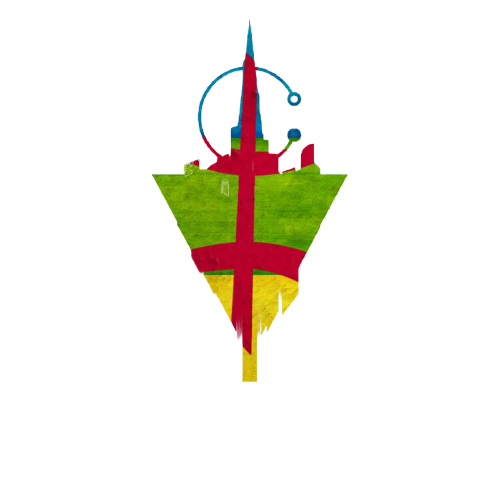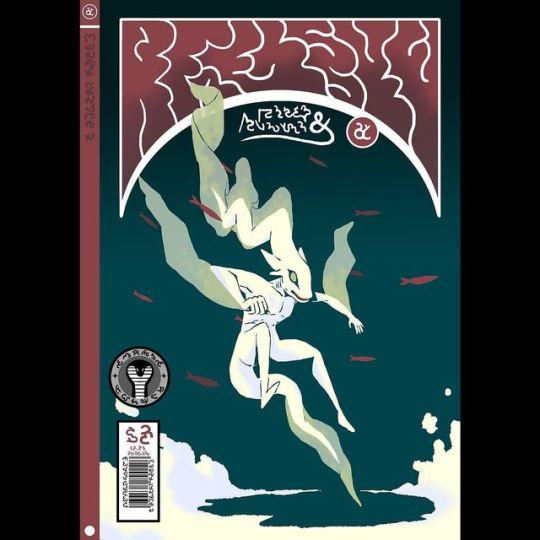#oldlanguages
Photo

Another Psalter written in Church Slavonic, a Slavic language of the Southern Slavic language family. Today, this is used largely as a liturgical language, although at least 2 centuries ago, words from the language were commonly used alongside others, most notably, Russian.
#churchslavonic#russian#psalter#psalms#slaviclanguages#slavic#russophile#slaviclanguage#easterneurope#russia#cyrillicscript#glagolitic#linguist#languages#oldlanguages#langblr
4 notes
·
View notes
Text
The Amazigh people

We are called Amazigh, plural Imazighen, a word which means “free people” in the Indigenous Tamazight language. Among outsiders, the more common – though incorrect – name for Imazighen is Berber, a term that is largely rejected by Imazighen for its negative connotations.
if you want to write your name in tifinagh calligraphy, contact me on my freelance account, here
#amazigh#amazighflag oldlanguage northaferica morocco tifinagh calligraphy berber tachelhit tamazight maroc kbyle rif#morocco#tamazight#tachelhit#maroc#tifinagh#oldlanguage#amazightranslation#berber#northaferica#kbyle
9 notes
·
View notes
Photo

Luctor et emergo - I struggle and emerge. 🌱🌷 Feeling this Latin phrase strongly this spring season. The energy is changing and while we struggled through the dirt of the last couple months, shedding old habits and skins and making room for new growth. Spring to me always brings hope, growth and renewal. Where are you growing this season? What changes have you made? I've been focusing on clearing out the old unused items in my home and trying to maintain a more positive and kind outlook. . . . #latin #oldlanguage #purpleearrings #lavenderearrings #bohostyle #bohojewelry #lavender #jewellery #purple #fashionaccessory #bodyjewelry #lilac #violet #pearl #earrings #gemstone #metal #earringlove #earringfashion #fashionista #trendy #earring #jewelry #instapic #earringaddict #earringswag #gorgeous #beautiful #piercing #girl #earringstagram #photography #earringsoftheday #cute #accessories #stylish (at San Luis Obispo, California) https://www.instagram.com/p/BvxwNDBA9bH/?utm_source=ig_tumblr_share&igshid=1jkpr0cuz77du
#latin#oldlanguage#purpleearrings#lavenderearrings#bohostyle#bohojewelry#lavender#jewellery#purple#fashionaccessory#bodyjewelry#lilac#violet#pearl#earrings#gemstone#metal#earringlove#earringfashion#fashionista#trendy#earring#jewelry#instapic#earringaddict#earringswag#gorgeous#beautiful#piercing#girl
0 notes
Photo

????? ????? http://ift.tt/2osXXsA
#book#cover#Illustration#unknown#mysterious#oldlanguage#reptile#amphibian#lovecraft#typography#comic
5 notes
·
View notes
Text
Not from here, darling?
read it on the AO3 at https://ift.tt/IhOCS51
by msfeyredarling
Words: 900, Chapters: 1/1, Language: English
Series: Part 8 of FEYSAND darlings, Part 9 of ACOTAR everything
Fandoms: A Court of Thorns and Roses Series - Sarah J. Maas
Rating: General Audiences
Warnings: No Archive Warnings Apply
Categories: F/M
Characters: Feyre Archeron, Rhysand (ACoTaR)
Relationships: Feyre Archeron/Rhysand, Feyre Archeron & Rhysand
Additional Tags: Most random thing I have ever written, feysand, feyrhys, oldlanguage
read it on the AO3 at https://ift.tt/IhOCS51
0 notes
Photo

Greek appreciation post! Start learning this rich, beautiful language today!🇬🇷
. . .
#mondly #languages #languagelearning #didyouknow #greek #learngreek #greeklanguage #speakgreen #greece #oldlanguages #rarelanguages #learnonline #learnfromhome #study #studygram
0 notes
Text
Saving the World’s Oldest Languages
Saving the World’s Oldest Languages
While there are more than 7,000 languages spoken around the world, many are in danger of dying out. In this reel, we’re learning new tongues and meeting people trying to save languages ranging from Osing to Quechua.
SUBSCRIBE: https://goo.gl/vR6Acb
#OldLanguages #quechua #osing
This story is a part of our Human Condition series. Come along and let us connect you to some of the most peculiar,…
View On WordPress
0 notes
Photo

Happy birthday, Lithuania! "Lithuania is a great country, because of its very old language. Our language is related to Sanskrit Latin and Ancient Greek. It is the oldest surviving Indo-European language and has preserved the most phonetically and morphological aspects of the proto-language which many other European languages come from. Visit Lithuania and listen to your ancestors' language." Giedrė Zarėnaitė, Lithuania – violin #beyondanorchestraladventure #discovery #journey #adventure #living#breathing #unity #NordicRegion #BalticSea #BalticSeaPhil #waterworks #water #NationalDay #Lithuania #visitlithuania #oldlanguage
0 notes
Text
Learn Ancient Languages!
Currently, learning ancient/medieval languages is the preserve of university scholars, to be read by a select audience. In this post, I argue that all linguists should have an active interest in older forms of their target languages.
Older forms of your target language demonstrate the genesis and development of that language. In being aware of these forms, you will have a better understanding of the modern version, as well as the major differences.
In addition, many groundbreaking texts in your target language were written in older forms. This is why I advocate studying other topics in your target language(s), and this could be considered a gateway to studying the historical texts. While modernised versions of the language are useful, the true linguist does not depend on these. Rather he compares between the older and the modern version and deduces the development of the language.
When I began studying the music of Guillaume de Machaut (1300- ca.1377), I was brought into contact with Ancien Français. Fortunately, with a modest level of French I could recognise significant differences and connections with the modern language. After an unnecessary hiatus, I intend to read musical texts in Ancien Français and understand the grammar, which I will compare with the modern language.
While many people who study Ancient Languages are university scholars, I do not see why this subject should be confined to academic halls. Do you, in fact, need an advanced understanding of your target language before examining texts in older forms? Not necessarily. My French was nowhere near as good as today when I began reading de Machaut’s poems. Of course, I did not understand everything, but the exposure did improve my understanding of root words, etymology, and spelling in modern French.
Furthermore, you do not have to reach back into the Middle Ages or beforehand. Language constantly evolves and the language of a century ago, even up to 500 years, is sufficient for study. I have a copy of Gargantua by François Rabelais (link contains English translation: my copy is in French), written in «Moyen Français». This is far more accessible than Machaut’s French, and the older French of Bataille Loquifer (written in the 12th century).
You do not have to become fluent in these older forms, although I think this offers many great benefits. For example, you could publish a work explaining the development of vocabulary in your target language-- always aim for more than just ordering a coffee or booking a room. But even without fluency, you can compare, contrast, learn new vocabulary, examine the spelling, understand the grammar, refine your understanding of syntax, as well as enjoying classical texts.
Most of all, studying older languages requires the same curiosity, deduction, and synthesis that is required for studying any foreign language. Don’t settle for studying a foreign language just to remember foreign words. Foreign languages are not just a means of communication, but a means of thinking. Languages contain culture and philosophy. Go beyond the printed page and ask questions. Where did these words come from? How did this syntax develop? When was the grammar standardised and why?
Studying older forms of the language helps answer these questions.
If you do intend to study for a degree in a foreign language, why wait until university begins before widening your reading? Personally, I intend to study Ancien Français, Mittelhochdeutsch, Church Slavonic, and Biblical Hebrew.
I will discuss more on this topic in future.
Consider studying older versions of your target languages today.
#ancientlanguages#medievallanguages#ancienfrançais#mittelhochdeutsch#biblicalhebrew#ancientgreek#churchslavonic#classicalarabic#oldlanguages#latin#greek#hebrew#arabic#russian#french#german#english#langblr#foreignlanguages#linguist#bilingual#multilingual#language#languagehistory#exophonic#exophonicwriting#exophonicwriter
2 notes
·
View notes